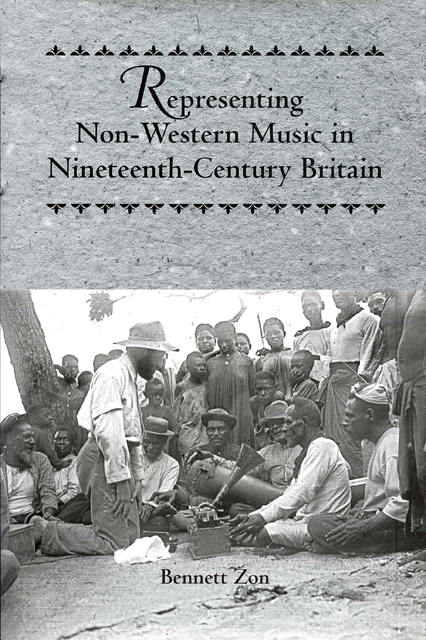Book contents
- Frontmatter
- Dedication
- Contents
- List of Illustrations
- Preface
- Acknowledgments
- Introduction Humanizing the Musical Savage: Orientalism and Racism in the History of British Ethnomusicology
- Part One Early Anthropological Influences
- Part Two Musicology in Transition to Evolution
- Part Three Individualism and the Influence of Evolution: Charles Samuel Myers and the Role of Psychology
- Part Four Retaining Cultural Identity: A. H. Fox Strangways and the Problems of Transcription
- Epilogue The “Ethnomusicology” in Long Nineteenth-Century Representations of Non-Western Music
- Works Cited
- Index
- Eastman Studies in Music
Introduction - Humanizing the Musical Savage: Orientalism and Racism in the History of British Ethnomusicology
Published online by Cambridge University Press: 10 March 2023
- Frontmatter
- Dedication
- Contents
- List of Illustrations
- Preface
- Acknowledgments
- Introduction Humanizing the Musical Savage: Orientalism and Racism in the History of British Ethnomusicology
- Part One Early Anthropological Influences
- Part Two Musicology in Transition to Evolution
- Part Three Individualism and the Influence of Evolution: Charles Samuel Myers and the Role of Psychology
- Part Four Retaining Cultural Identity: A. H. Fox Strangways and the Problems of Transcription
- Epilogue The “Ethnomusicology” in Long Nineteenth-Century Representations of Non-Western Music
- Works Cited
- Index
- Eastman Studies in Music
Summary
At its territorial peak, just after the end of World War I, the British Empire consisted of “naval stations and military bases extending from Gibraltar to Hong Kong, the four great dominions of settlement [Canada, Australia, New Zealand and South Africa], the Indian empire that occupied an entire subcontinent, the crown colonies in Asia, Africa and the Caribbean and the League of Nations Mandates, especially in the Middle East.” This included “self-governing colonies with predominantly white populations, Crown Colonies and Protectorates with non-European subjects, and the British Raj in India as an Empire in its own right.” Inevitably, as British expansion increased, as a seemingly ineluctable force, into remote areas of the world, the impact of its foreign acquisitions would impact on the way it saw itself and the way it saw others. David Cannadine argues that “as with all such transoceanic realms, the British Empire was not only a geopolitical entity: it was also a culturally created and imaginatively constructed artifact.” Edward Said argues the point more broadly: “So vast and yet so detailed is imperialism as an experience with crucial cultural dimensions, that we must speak of overlapping territories, intertwined histories common to men and women, whites and non-whites, dwellers in the metropolis and on the peripheries, past as well as present and future.”
Part of this intertwining is bound up, inevitably, with what John MacKenzie refers to as the “debate about the relationship between metropolitan cultures and empire,” in other words issues concerning the influence that imperialholdings had on high literary and artistic culture as it filtered down to more British popular entertainments. Within this he refers to art, music, theater, dance, and literature (both popular and academic), showing how “they both reflected and sometimes actively shaped the instruments” of domestic inheritances of empire. From the standpoint of music, as the work of Jeffrey Richards, among many others, shows, this could not be more certain: “In view of the ubiquity of imperialism in fiction, painting, poetry and theatre, it would seem intrinsically likely that it has left its traces in music.”
- Type
- Chapter
- Information
- Publisher: Boydell & BrewerFirst published in: 2023



